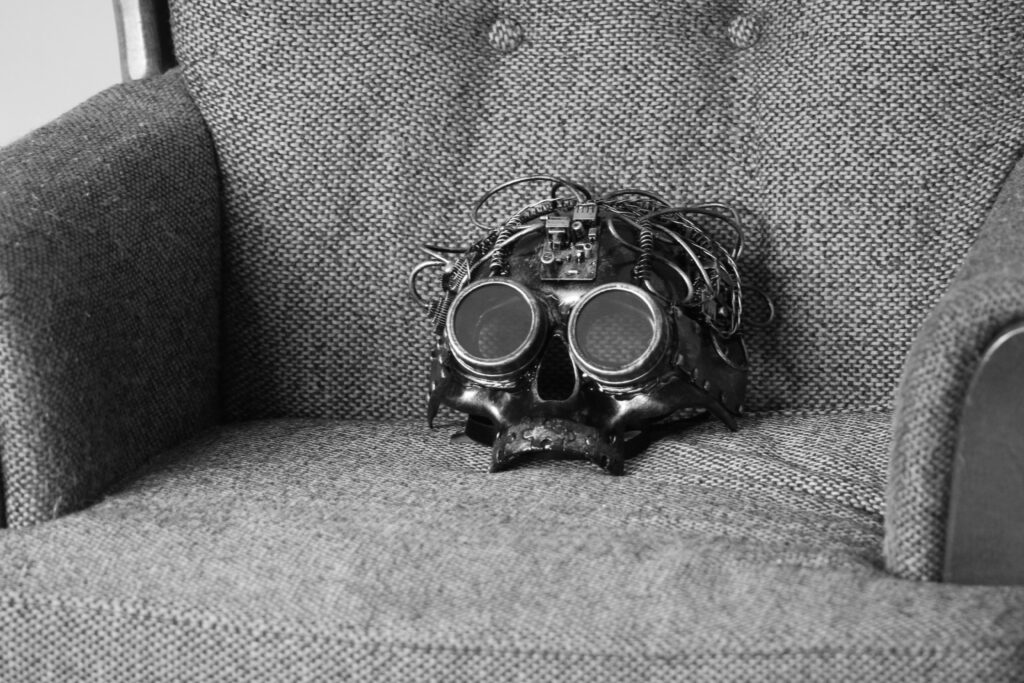Ty Brueilly’s ‘Shucks’ is not a film for the faint-hearted, nor is it a film for the passive viewer. This 50-minute experimental horror piece plunges into the abyss of obsession and self-destruction, refusing to hold your hand along the way. With no dialogue to offer guidance, the film relies solely on its unsettling imagery and an oppressive, carnage-infused score to drag its audience into a spiraling nightmare.
The film’s central character, Shucks (Austin Rich), exists in a world teetering between dystopian minimalism and psychological implosion. His home – a barren, almost apocalyptic lounge – is a prison of his own making. At first, his existence is peculiar but controlled. Then, at the 13-minute mark, a shift occurs. Shucks cleans up, dons a suit, and sits before his television. But this is no redemption arc. His consumption becomes literal, and the grotesque cycle he cannot escape begins anew.
Brueilly, pulling quadruple duty as director, writer, cinematographer, and actor (as Sun WuKong), crafts a world that is suffocating in its intimacy and brutality. Shot mostly in handheld style, the film’s black-and-white cinematography is more than an aesthetic choice – it is a visual representation of decay, of moral erosion. The framing is erratic, intrusive, suffocating. The absence of dialogue makes the experience even more isolating; the only voice here is the relentless hum of its grotesque, carnivorous soundscape.
Highly experimental in form, ‘Shucks defies’ conventional horror while embodying its darkest essence. Some will find its artistic ambition commendable; others will be left disturbed, perhaps even repulsed. But that is its power. Horror, after all, should make you feel disturbured. ‘Shucks’ stays with you like the remnants of a nightmare you can’t quite shake.


